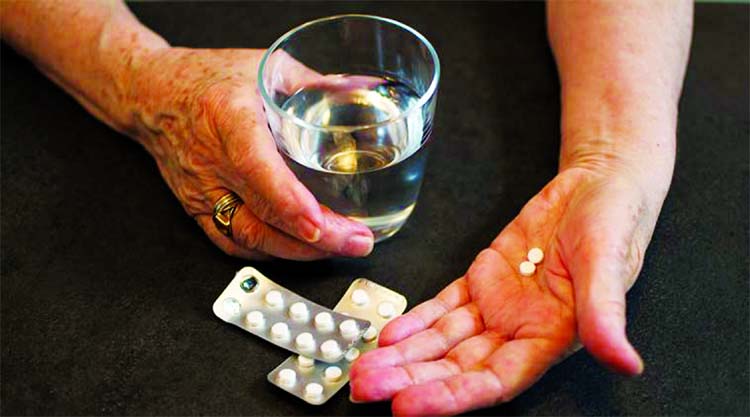
Weekend Plus Desk :
Elderly people who have never had a heart attack in their life can avoid taking a baby aspirin every day, as per a US Australian study of more than 19,000 volunteers.
The study concluded that taking aspirin without a health condition is quite ineffectual in preserving health. Moreover, the major risks of bleeding vastly outweigh the benefits to heart owing to aspirin, as reported in the New England Journal of Medicine and presented Sunday at the European Respiratory Society International Congress in Paris.
While evidence remains strong that baby aspirin therapy aids in preventing a second heart attack or stroke, the study explored whether a first heart attack can be prevented by the small amount of blood thinners in aspirin. The study enrolled volunteers who were at least 70-years-old. Patients who were black or Hispanic and living in the US were included in the study as they face a higher risk of heart disease or dementia generally.
The treatment was given for five years and the rate of heart diseases was not much lower in the 9,525 volunteers taking 100 mg of aspirin daily than in the 9,589 who took placebo tablets.
However, the cases of major bleeding were 38 per cent more with aspirin. According to the study, aspirin proved ineffective for people who were suffering from high blood pressure or high cholesterol, who were on other drugs to mitigate the risk for heart diseases.
The study was stopped early since the ‘wonder drug’ that aspirin is generally believed to be, was not working.
Elderly people who have never had a heart attack in their life can avoid taking a baby aspirin every day, as per a US Australian study of more than 19,000 volunteers.
The study concluded that taking aspirin without a health condition is quite ineffectual in preserving health. Moreover, the major risks of bleeding vastly outweigh the benefits to heart owing to aspirin, as reported in the New England Journal of Medicine and presented Sunday at the European Respiratory Society International Congress in Paris.
While evidence remains strong that baby aspirin therapy aids in preventing a second heart attack or stroke, the study explored whether a first heart attack can be prevented by the small amount of blood thinners in aspirin. The study enrolled volunteers who were at least 70-years-old. Patients who were black or Hispanic and living in the US were included in the study as they face a higher risk of heart disease or dementia generally.
The treatment was given for five years and the rate of heart diseases was not much lower in the 9,525 volunteers taking 100 mg of aspirin daily than in the 9,589 who took placebo tablets.
However, the cases of major bleeding were 38 per cent more with aspirin. According to the study, aspirin proved ineffective for people who were suffering from high blood pressure or high cholesterol, who were on other drugs to mitigate the risk for heart diseases.
The study was stopped early since the ‘wonder drug’ that aspirin is generally believed to be, was not working.

